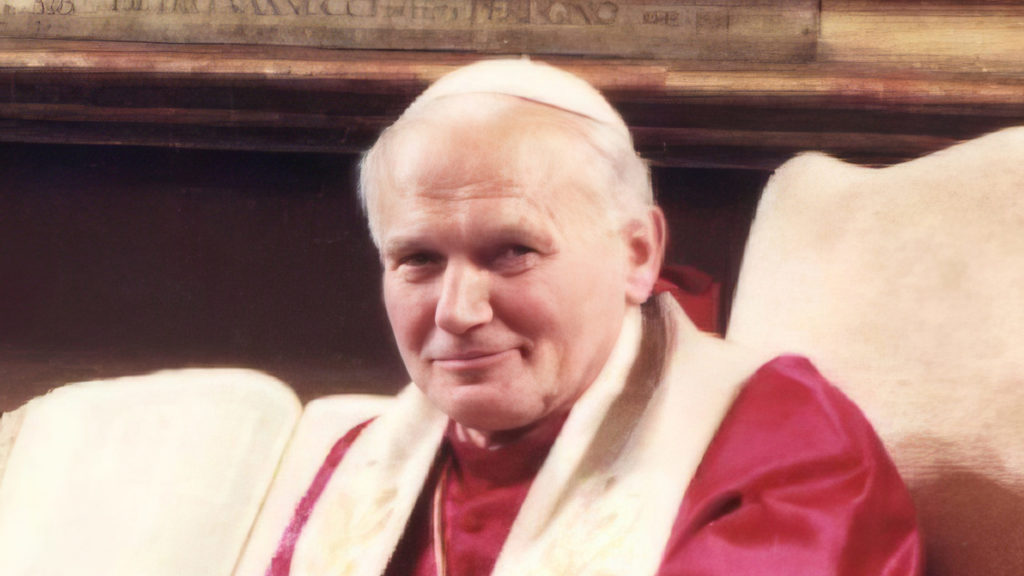On Oct. 22, we celebrate the feast of Pope St. John Paul II. It’s unusual to remember a saint who lived so recently.
In John Paul, we saw a man whom God had endowed with prodigious natural gifts: genius-level intelligence, profound poetic sensibilities, charm and affability, telegenic good looks, steely toughness, and perfect comedic timing.
I was first attracted to those natural qualities.
It was the early 1980s, and I was a Protestant minister, instinctively anti-Catholic. I was not alone among his hesitant admirers. He captured our attention because of his effective combat in the culture wars. You name the social issue — abortion, euthanasia, pornography, communism — and he was all over it. He had a philosopher’s ability to state his case with precision. Yet he had an actor’s ability to make his point with economy: a single line or a symbolic gesture.
That’s how he got our attention. But he kept it because of something else.
Gradually and grudgingly, many of us in the Protestant world came to admit that he was effective in the culture wars, not because of his bully pulpit or his media savvy or his philosophical suavity, but because of his superior command of Scripture.
This particular quality set him apart from many popes of the post-Reformation era. It’s not that these men were unscriptural or anti-scriptural. But their methods were scholastic, emphasizing ever-finer distinctions in thought. Moreover, their pastoral style set the tone for preachers and teachers throughout the Catholic world. So many Protestants found Catholic literature easy to dismiss as insufficiently biblical.
But then came John Paul.
We should have known from his first words as pope that the world was in for something different. He began with “Be not afraid,” the exhortation of prophets and angels — and God himself — uttered whenever history had taken a momentous turn (see Genesis 46:3 and Luke 2:10). This phrase became a watchword of his pontificate, a reminder and reassurance, even to those of us who did not count ourselves among his flock.
And he confirmed his pervasively scriptural style in his writings. In his first encyclical, almost three-quarters of the 205 notes are scriptural citations.
Here, I thought, was a pope who could speak to Protestants. But it was more than that. He could speak to the whole world, because Scripture speaks to the whole world — because God’s word speaks to hearts that God himself created and redeemed.
In 1985 I became a Catholic. From then on, just the act of calling that man Papa could move me to tears.
He called upon all Catholic teachers and preachers to follow his model. The work of religion teachers, he said, “must be … penetrated by the thought, the spirit and the outlook of the Bible and the Gospels.” The sermons of priests and deacons, he said, must be “centered upon the Bible texts.”
Because he was fluent in Sacred Scripture, John Paul could speak with moral and spiritual authority to the world, to the Church, and to the churches.
He still speaks to us and with greater power, as a saint of the Church.

